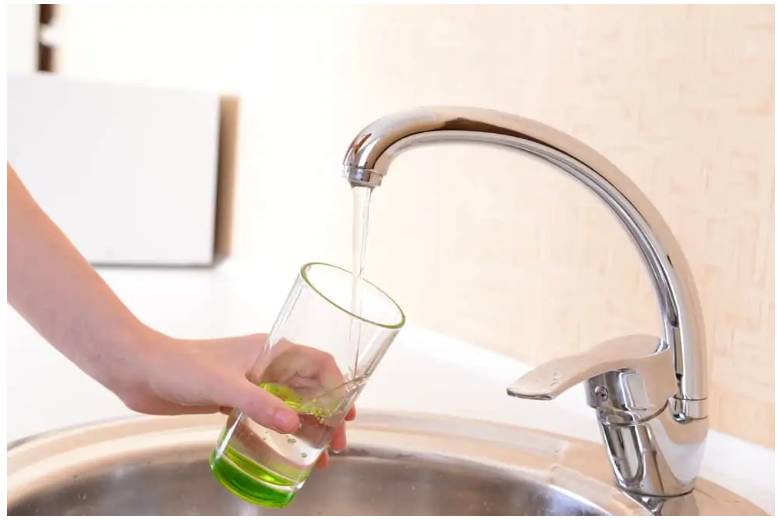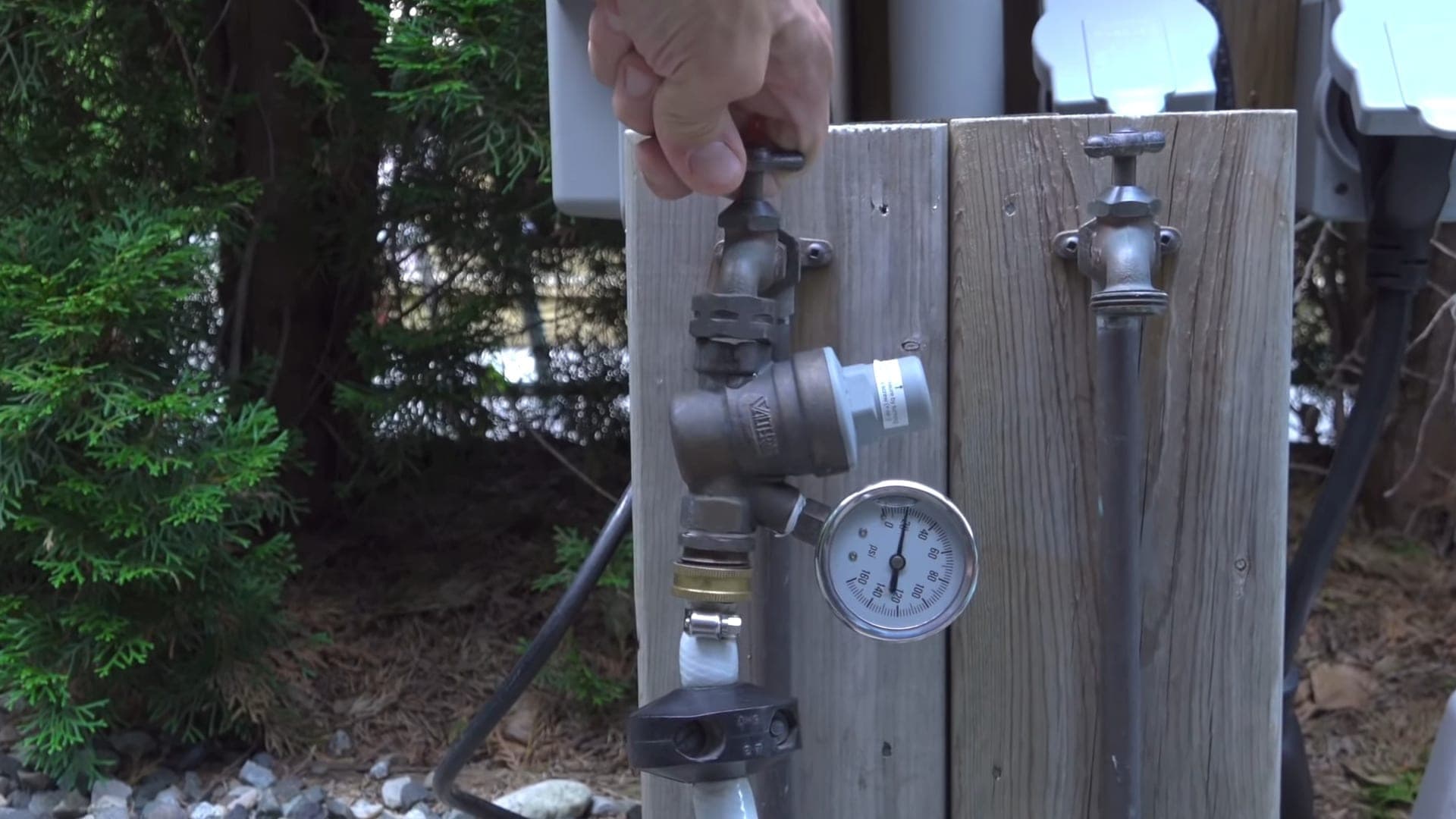The Conclusive Advice to Resolving Low Water Pressure in Your Home
The Conclusive Advice to Resolving Low Water Pressure in Your Home
Blog Article
The article underneath on the subject of Low Water Pressure in the House? is exceedingly insightful. You should read it.

Low water stress in your home can be a discouraging problem, affecting every little thing from showering to cleaning meals. If you're experiencing weak water circulation, there are a number of possible causes and solutions to discover. In this guide, we'll go over common factors for low tide stress and practical steps to deal with the issue efficiently.
Intro to Low Water Stress
Low water stress occurs when the flow of water from your faucets, showers, and other components is weak than usual. This can make everyday tasks a lot more tough and much less reliable. Recognizing the reasons for low water pressure is vital to locating the appropriate remedy.
Usual Reasons For Low Water Pressure
Faulty Stress Regulatory Authorities
Stress regulators are accountable for preserving consistent water stress in your home. If they malfunction, it can cause low tide pressure or uneven circulation throughout your home.
Community Water Supply Issues
Occasionally, the issue exists outside your home. Local water system problems, such as main line leakages or maintenance work, can briefly decrease water pressure in your area.
Pipeline Obstructions
With time, pipelines can end up being blocked with natural resource, debris, or particles, limiting the flow of water. This is an usual concern in older homes with galvanized steel pipes.
Rust
Deterioration within pipes can result in leaks and reduced water stress. Rust accumulation can restrict water circulation, especially in aging plumbing systems.
Just How to Detect Low Tide Stress
Examining Pipes
Examine visible pipes for signs of leaks, deterioration, or clogs. Pay attention to any uncommon audios, such as knocking or rattling pipes, which could suggest issues within the plumbing system.
Consulting with a Plumber
If you're unable to determine the source of low tide pressure, take into consideration employing a professional plumber to perform an extensive assessment. They can identify underlying concerns and suggest ideal options.
Examining Faucets and Components
Start by examining the water pressure at different faucets and components throughout your home. If the problem is separated to particular locations, it might indicate localized troubles.
DIY Solutions to Deal With Low Water Pressure
Flushing Water Heater
Sediment accumulation in the water heater can restrict circulation and decrease effectiveness. Purging the storage tank regularly helps get rid of debris and maintain ideal performance.
Checking Stress Regulatory Authority
Ensure that the stress regulatory authority is functioning correctly. Adjusting or replacing the regulatory authority can aid restore proper water stress throughout your home.
Cleansing Aerators and Showerheads
Natural resources can collect in aerators and showerheads, minimizing water flow. Remove and cleanse these parts consistently to enhance water pressure.
Clearing Up Clogs in Pipeline
For small blockages, try making use of a plumbing snake or chemical drainpipe cleaner to clear obstructions in pipelines. Beware when using chemicals and adhere to safety standards.
When to Call a Professional Plumber
If do it yourself initiatives fail to settle the problem or if you believe considerable plumbing issues, it's ideal to seek help from a licensed plumber. They have the know-how and devices to attend to intricate issues safely and efficiently.
Safety Nets to Preserve Water Stress
Mounting a Stress Booster
Think about setting up a pressure booster pump to improve water stress in areas with constantly low flow. This can be specifically useful for multi-story homes or residential properties with high-demand fixtures.
Tracking Water Usage
Bear in mind water use practices and prevent ill-using the plumbing system. Simple modifications, such as shocking showers and washing loads, can assist keep adequate water stress.
Routine Maintenance
Set up routine upkeep for your plumbing system to prevent problems such as corrosion, leaks, and obstructions. Attending to small problems early can assist stay clear of more considerable fixings later.
Conclusion
Handling low tide stress can be irritating, but determining the underlying causes and carrying out ideal remedies can restore ideal flow throughout your home. Whether it's cleaning up aerators, checking pipelines, or seeking advice from a plumber, taking aggressive actions can make sure a constant supply of water for your everyday needs.
HOW TO FIX LOW WATER PRESSURE IN YOUR HOUSE
When your plumbing system functions properly, you likely never think about the water pressure coming from your faucets, shower heads, or other water fixtures. If you experience low water pressure in your house, though, it can quickly cause problems for cooking, cleaning, bathing, and laundry. Learning how to fix low water pressure in your house can help you avoid frustrating situations and worsening plumbing issues.
When investigating why your home has low water pressure, call the plumbing professionals at Hutchinson to inspect your system, identify the problem, and perform necessary repairs. Our highly-trained plumbing system experts utilize the best tools and techniques available to resolve issues with your home’s plumbing system. Call today to schedule a service with our experts and resolve the low water pressure in your home.
Common Causes of Low Water Pressure
While learning about how to fix low water pressure in your house, it’s essential to understand the various causes of this issue. From plumbing system failures to issues with your water fixtures, there are many reasons for low water pressure in a home. The most common causes of low water pressure include:
Pipe corrosion: If you live in an old house, your pipes could be much older than you realize. Over time, most pipes corrode, especially those made from galvanized steel. Corrosion creates small holes in your pipes that allow water to leak as it travels to your fixtures, leading to low water pressure. Hard water: Hard water forms when water retains a certain concentration of mineral and sediment buildup. Hard water can exacerbate corrosion and reduce water pressure. Hard water remains one of the main culprits of clogged pipes. Clogged pipes: When a pipe blockage clogs your system, it restricts water flow. That’s why clogged pipes are a leading cause of low water pressure. Faulty fixtures: Components within individual water fixtures can experience isolated clogging and rusting that cause low water pressure. If you notice only low shower pressure or limited faucet flow, inspect your system for faulty fixtures displaying rusting, clogging, and other damage. Water line leaks: Your water supply usually comes from a community source connected to your home through a water line. Any leaking in this water line will reduce water pressure before it enters your home. If you share a water line with neighbors, they might also notice low water pressure due to this problem. Broken pressure regulator: The pressure regulator ensures the water flowing throughout your home remains at a psi of about 50. Damage or breakdown of this crucial component will reduce water pressure throughout your property. Closed valve: The water valve supplying your home must be fully open to enable proper water pressure. A partially closed valve will yield low water pressure and cause issues. 5 Ways to Fix Low Water Pressure
Check for Leaks
Depending on their severity, leaks are usually easy to identify as the cause of your low water pressure. Whether your basement floods overnight or you notice mold growth on surfaces near your pipes, leaks usually present noticeable symptoms. In most cases, you’ll need to call professionals to replace sections of damaged piping or seal water line leaks.
Clear Clogged Pipes and Drains
Clogs can occur in any part of your system at any time. In most cases, it’s difficult to resolve clogged pipes and drains without professional equipment and experience.
Hutchinson experts can perform a comprehensive plumbing system inspection to identify the clog’s source and remove obstructions from your pipes. With the help of advanced equipment, we can restore your home’s normal water flow and pressure.
Replace the Pressure Regulator
After identifying a faulty pressure regulator as the cause of your low water pressure, there’s nothing to do but replace the mechanism. Homeowners should never conduct their own replacement.
Attempting to replace a crucial component like your pressure regulator that attaches to your overall plumbing framework could cause unnecessary damage and worsen the situation. Instead, rely on professionals to replace your pressure regulator properly.
Repair or Replace Broken Faucets and Fixtures
If you notice water pressure issues in an individual faucet or fixture, you can solve the problem quickly. Depending on the type and location of the fixture, you can likely replace it yourself.
For homes with custom fixtures, you might need to special order new parts. In these cases, opting for professional replacements helps you avoid any mishaps that could leave your water feature dysfunctional for longer.
Install a Pressure Booster
Water pressure problems impacting your neighborhood or community at large might require more overarching solutions. If your neighbors experience low water pressure as well, you might need to integrate a pressure booster into your water supply line.
Pressure boosters upgrade the water pressure starting at the source. These mechanisms can provide water pressure benefits to any homes on the same supply line. Call Hutchinson today to install a pressure booster on your water supply line.
Call Hutchinson to Fix All Your Plumbing Issues
Low water pressure is just one of many plumbing problems that reduce home comfort and cause system issues. The top-rated professionals at Hutchinson offer comprehensive plumbing services, including system inspections, maintenance, and repairs.
https://www.hutchbiz.com/blog/2024/01/15/how-to-fix-low-water-pressure-in-house/

Hopefully you enjoyed our excerpt about . Thanks for spending some time to browse our article. Sharing is nice. One never knows, you may be doing someone a favor. Thank you for being here. Revisit us soon.
Booking Report this page